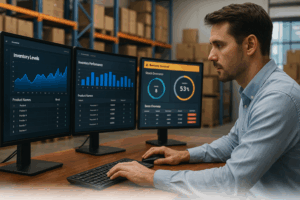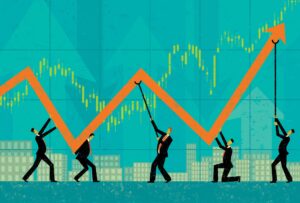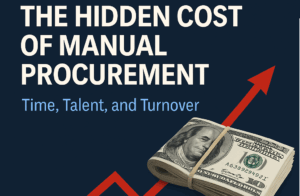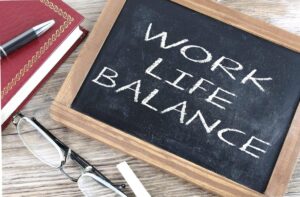In today’s rapidly evolving business landscape, effective supply chain leadership is crucial for maintaining operational efficiency, fostering innovation, and achieving sustainable growth. According to Deloitte’s Global Supply Chain Survey (2023), 79% of companies identified leadership as a primary driver of supply chain resilience. While technical expertise and strategic decision-making are fundamental, self-awareness—a leader’s ability to understand and manage their own strengths, weaknesses, and impact on others—remains an underemphasized yet vital component of successful leadership in this domain.
The Foundation of Self-Awareness
Self-awareness forms the bedrock of emotional intelligence, encompassing an understanding of one’s emotions, behaviors, and decision-making processes. In the supply chain context, this extends to acknowledging how personal traits influence interactions with teams, stakeholders, and external partners.
A Harvard Business Review study (2022) revealed that leaders with high self-awareness are 32% more likely to deliver measurable business results. This capability enables supply chain leaders to navigate volatile markets, complex logistics networks, and cross-cultural challenges with clarity and empathy.
Understanding Personal Strengths
The demands of supply chain management require multifaceted leadership skills, including strategic foresight, analytical acumen, and adaptability. Self-aware leaders are more likely to recognize and leverage their strengths effectively.
For example:
- Walmart utilized predictive analytics during the pandemic in 2020, mitigating risks and optimizing inventory levels to ensure the steady availability of essential goods while avoiding overstock situations.
- Leaders with robust communication skills may focus on aligning global teams and fostering collaboration across diverse regions, as evidenced by Caterpillar’s global supply chain strategy, which emphasizes open communication to overcome regional disruptions.
Additionally, self-awareness helps leaders delegate tasks that fall outside their core competencies. By strategically assigning responsibilities aligned with team members’ expertise, leaders foster a more agile and effective organization. This approach mirrors Amazon’s decentralized decision-making, which empowers specialized teams to address localized challenges and improve responsiveness.
Areas for Growth: A Commitment to Continuous Improvement
Acknowledging areas for growth is as important as recognizing strengths. In the supply chain industry, where disruptions are frequent, self-aware leaders understand the need for a growth mindset.
For instance:
- Leaders who identify gaps in their technological knowledge can prioritize upskilling to stay ahead of innovations like blockchain, IoT, and artificial intelligence. A recent Gartner report (2023) indicated that 57% of supply chain leaders rank digital transformation as their top area for personal development.
- PepsiCo implemented an ongoing leadership training program focusing on adaptability and sustainability, resulting in a 20% reduction in operational costs over five years.
This commitment to personal improvement fosters a culture of learning within organizations, encouraging teams to adopt innovative solutions to meet evolving demands.
The Ripple Effect: Benefits for the Supply Chain Ecosystem
Self-aware leadership benefits the entire supply chain ecosystem. Leaders who understand their strengths and limitations make more informed decisions, inspire trust, and enhance team performance.
A McKinsey study (2021) found that organizations with empathetic and self-aware leaders are 1.5 times more likely to retain top talent.
For example:
- Unilever’s focus on sustainability and team empowerment has led to achievements like reducing greenhouse gas emissions by 70% across logistics operations since 2010.
- Tesla’s culture of transparency and continuous improvement has enabled it to overcome significant production and supply chain challenges, setting a standard for resilience.
Strategies for Cultivating Self-Awareness
Cultivating self-awareness is an ongoing process. Leaders can adopt the following strategies:
- Regular Reflection: Dedicate time to introspect on leadership decisions and emotional triggers. Journaling or maintaining a decision log can reveal recurring patterns.
- Feedback Loop: Actively seek feedback from peers, subordinates, and external stakeholders to understand how others perceive their leadership style.
- Assessment Tools: Utilize tools like the Myers-Briggs Type Indicator (MBTI) or Gallup StrengthsFinder to identify inherent strengths and developmental areas.
- Continuous Learning: Engage in leadership workshops, online courses, or executive education programs. According to LinkedIn Learning (2023), 94% of employees prefer to work for organizations that invest in their development.
- Mentorship and Coaching: Partner with mentors who provide objective guidance and encouragement, helping leaders identify blind spots and suggest practical solutions.
Real-World Impacts of Self-Aware Leadership
The dynamic nature of supply chains necessitates leaders who are both technically competent and self-aware. For example:
- Procter & Gamble’s supply chain leaders emphasize emotional intelligence, ensuring resilience and efficiency in global operations.
- Leaders at Toyota integrate self-awareness into their problem-solving approach, driving innovation through the Kaizen philosophy, which focuses on continuous improvement and teamwork.
A Strategic Imperative for the Future
As supply chains become more interconnected and complex, the importance of self-awareness in leadership will continue to grow. According to PwC’s Future of Supply Chain report (2023), companies with effective leaders at the helm are 2.5 times more likely to outperform their peers in financial and operational metrics.
Organizations that prioritize self-aware leadership will be better positioned to adapt to disruptions, seize opportunities, and build resilient ecosystems.
The Perfect Planner Team is here if you have any questions about Supply Chain Leadership, and we offer a free consultation service. If you would like to connect with us on this article or any other topic, please message us on LinkedIn, shoot us an email at info@perfectplanner.io, visit our website at www.perfectplanner.io, or give us a call at 423.458.2979.
Author: Ed Danielov
Publication Date: November 21, 2024
© Copyright 2024 Perfect Planner LLC. All rights reserved.
References
Deloitte. (2023). Global Supply Chain Survey 2023. Retrieved from https://www.deloitte.com.
Harvard Business Review. (2022). The Importance of Self-Aware Leadership. Retrieved from https://www.hbr.org.
Walmart Case Study. (2020). Supply Chain Analytics during the Pandemic. Retrieved from https://www.walmart.com.
Amazon Corporate Blog. (2023). Decentralized Decision-Making in Supply Chains. Retrieved from https://www.amazon.com.
Gartner. (2023). Top Leadership Priorities in Supply Chain Management. Retrieved from https://www.gartner.com.
PepsiCo. (2022). Sustainability Report. Retrieved from https://www.pepsico.com.
McKinsey & Company. (2021). The Role of Empathy in Leadership Retention. Retrieved from https://www.mckinsey.com.
Unilever. (2023). Global Sustainability Report. Retrieved from https://www.unilever.com.
Myers-Briggs Type Indicator and Gallup StrengthsFinder. (2023). Official Websites. Retrieved from https://www.mbti.com & https://www.gallupstrengthscenter.com.
LinkedIn Learning. (2023). Employee Preferences for Workplace Development. Retrieved from https://www.linkedin.com.
Tesla. (2022). Annual Impact Report. Retrieved from https://www.tesla.com.
Procter & Gamble. (2023). Leadership Insights. Retrieved from https://www.pg.com.
PwC. (2023). Future of Supply Chain Report. Retrieved from https://www.pwc.com.






